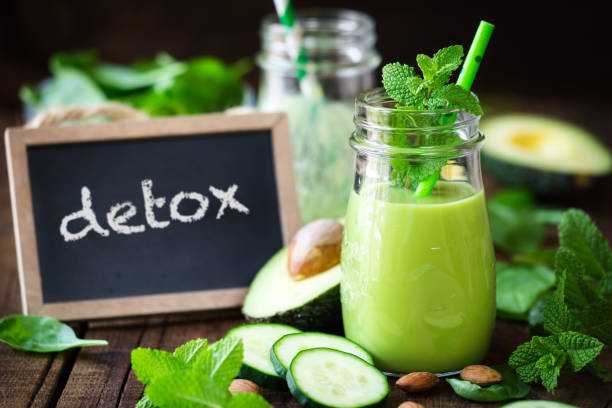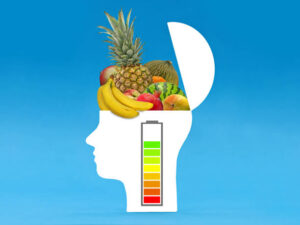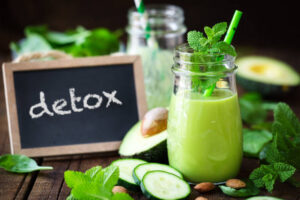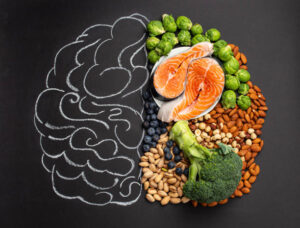In today’s fast-paced world, where processed foods and environmental toxins are too common, our bodies sometimes need a little help to reset and recharge. A vegetarian detox plan offers a natural, plant-based way to cleanse your system, boost energy, and improve overall well-being. But what exactly does this involve, and how can you make it work for your lifestyle?
What Is a Vegetarian Detox Plan?
At its core, a vegetarian detox plan is a short-term dietary regimen that focuses on whole, plant-based foods to support your body’s natural detoxification processes. Unlike extreme juice cleanses or fad diets, this plan doesn’t require deprivation or starvation. Instead, it emphasizes nourishing your body with nutrient-dense foods that help eliminate toxins while restoring vitality.
Why Choose a Vegetarian Detox?
A vegetarian detox isn’t just about cutting out meat—it’s about filling your plate with a colorful variety of fruits, vegetables, whole grains, and legumes. These foods are rich in fiber, antioxidants, and essential vitamins, which play a vital role in cleansing the liver, kidneys, and digestive system.
The Benefits of a Vegetarian Detox Plan
A vegetarian detox offers a multitude of benefits, both short- and long-term.
Physical Benefits
- Improved Digestion: The high fiber content in fruits and vegetables promotes regular bowel movements, flushing out waste more effectively.
- Radiant Skin: Antioxidants in plant-based foods combat oxidative stress, leading to clearer, glowing skin.
- Weight Management: By reducing processed foods and sugar, a detox can kickstart healthy weight loss.
Mental Benefits
- Increased Focus: Cutting out junk foods can reduce brain fog, helping you feel sharper and more alert.
- Stress Reduction: Many detox-friendly foods, like spinach and nuts, are rich in magnesium, which helps calm the nervous system.
Boosted Energy
During my first vegetarian detox, I was amazed at how quickly my energy levels soared. I swapped my usual mid-afternoon coffee for a green smoothie, and instead of feeling sluggish, I powered through my tasks with ease.
Types of Vegetarian Detox Diets
Vegetarian detox diets come in various forms, allowing you to choose an approach that aligns with your goals, preferences, and lifestyle. Here are some of the most popular types of vegetarian detox diets:
1. Raw Food Detox
This detox involves eating only uncooked and unprocessed plant-based foods, such as fresh fruits, vegetables, nuts, and seeds. The idea is to maximize nutrient intake while eliminating toxins commonly found in processed foods.
- Best For: Those seeking a nutrient-packed cleanse and improved digestion.
- Potential Challenges: May not be suitable in colder climates or for people with sensitive digestion.
2. Green Smoothie Detox
A green smoothie detox centers around drinking smoothies from leafy greens, fruits, and superfoods like chia seeds or spirulina. These smoothies provide a quick and easy way to flood your body with vitamins and antioxidants.
- Best For: People with busy schedules who need a convenient detox option.
- Potential Challenges: Low fiber intake compared to whole foods.
3. Whole Foods Detox
This approach emphasizes eating minimally processed vegetarian foods such as fresh produce, whole grains, legumes, nuts, and seeds. It’s a balanced way to detox while ensuring adequate fiber, protein, and healthy fats.
- Best For: Beginners or those looking for a sustainable detox method.
- Potential Challenges: Requires meal planning and preparation.
4. Ayurvedic Vegetarian Detox
Rooted in traditional Indian medicine, this detox focuses on balancing the body’s doshas (energetic forces) through specific vegetarian foods and spices. It often includes warm, cooked meals like kichari (a mix of rice, lentils, and spices) and herbal teas to support digestion and detoxification.
- Best For: Individuals interested in holistic wellness and traditional detox methods.
- Potential Challenges: Requires knowledge of Ayurvedic principles and specific ingredient sourcing.
5. Juice and Soup Cleanse
This hybrid detox combines fresh vegetable and fruit juices with nutrient-dense soups. The juices flood the body with antioxidants, while the soups provide fiber and warmth, making it a more balanced option than juice-only cleanses.
- Best For: Those looking for variety in a liquid-based detox.
- Potential Challenges: Prep-intensive and may not be satisfying for everyone.
Preparing for Your Vegetarian Detox
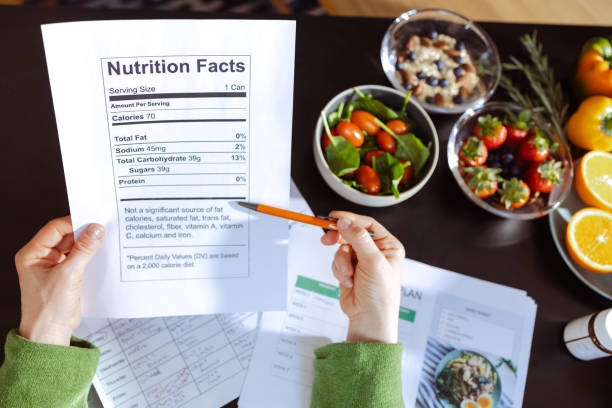
Before diving into a detox, preparation is key. Think of it as warming up before a workout—setting yourself up for success.
Step 1: Gradual Elimination
Start by cutting back on processed foods, caffeine, alcohol, and sugar a few days before your detox begins. This reduces withdrawal symptoms and makes the transition smoother.
Step 2: Stock Up on Essentials
Fill your kitchen with fresh produce, whole grains, legumes, nuts, and seeds. Don’t forget detox staples like lemon, ginger, and herbal teas.
Step 3: Set Realistic Goals
Are you detoxing to boost energy, improve digestion, or simply reset your eating habits? Having a clear goal will help keep you motivated.
Foods to Include in a Vegetarian Detox Plan
The cornerstone of a successful detox is eating the right foods. Here’s what should feature prominently on your plate:
Fruits
- Citrus fruits (lemons, oranges, grapefruits) to support liver detoxification.
- Berries for their high antioxidant content.
- Apples for their pectin, a type of fiber that binds to toxins.
Vegetables
- Leafy greens like spinach and kale for chlorophyll, which helps detoxify the blood.
- Cruciferous vegetables like broccoli and cauliflower to enhance liver function.
- Beets for their natural liver-cleansing properties.
Whole Grains
- Quinoa, brown rice, and oats provide fiber and sustained energy.
Legumes
- Lentils and chickpeas are excellent sources of plant-based protein and fiber.
Herbs and Spices
- Turmeric reduces inflammation and supports liver health.
- Ginger aids digestion and soothes the stomach.
- Parsley acts as a natural diuretic to flush out toxins.
What to Avoid During a Detox
Equally important is knowing what to avoid. Steer clear of:
- Processed and packaged foods laden with preservatives.
- Sugary drinks, including soda and sweetened teas.
- Fried foods and refined carbohydrates.
- Dairy products, as they can be harder to digest.
Vegetarian Detox Diet Plan Table
Here’s a simple yet effective plan to get you started:
| Day | Time | Meals |
| Day 1 | Morning (8:00 AM) | Warm lemon water with a pinch of turmeric |
| Breakfast (9:00 AM) | Green smoothie (spinach, banana, almond milk, chia seeds). | |
| Snack (11:00 AM) | Fresh fruit salad with a handful of almonds. | |
| Lunch (1:00 PM) | Quinoa salad with mixed greens, avocado, and a lemon-tahini dressing. | |
| Snack (4:00 PM) | Carrot and cucumber sticks with hummus. | |
| Dinner (7:00 PM) | Lentil soup with steamed broccoli and a small side of brown rice. | |
| Evening (8:30 PM) | Chamomile tea. | |
| Day 2 | Morning (8:00 AM) | Warm water with apple cider vinegar and a touch of honey. |
| Breakfast (9:00 AM) | Overnight oats topped with fresh berries and a drizzle of almond butter. | |
| Snack (11:00 AM) | A small handful of mixed nuts and seeds. | |
| Lunch (1:00 PM) | Roasted vegetable bowl with sweet potatoes, kale, and a tahini drizzle. | |
| Snack (4:00 PM) | A green juice (kale, cucumber, celery, apple, ginger). | |
| Dinner (7:00 PM) | Stir-fried tofu with bok choy, snap peas, and brown rice. | |
| Evening (8:30 PM) | Peppermint tea. | |
| Day 3 | Morning (8:00 AM) | Warm lemon water with grated ginger. |
| Breakfast (9:00 AM) | Chia pudding topped with mango slices and a sprinkle of pumpkin seeds. | |
| Snack (11:00 AM) | A sliced apple with almond butter. | |
| Lunch (1:00 PM) | Lentil and vegetable stew with a side of arugula salad. | |
| Snack (4:00 PM) | A handful of dried apricots and walnuts. | |
| Dinner (7:00 PM) | Zucchini noodles with marinara sauce and sautéed mushrooms. | |
| Evening (8:30 PM) | Ginger tea with a slice of lemon. |
Lifestyle Tips to Enhance Your Detox
A detox isn’t just about food—it’s a holistic process.
- Exercise: Gentle activities like yoga, walking, or stretching help stimulate circulation and encourage lymphatic drainage.
- Hydration: Drink plenty of water, herbal teas, or infused water with lemon and cucumber to stay hydrated.
- Sleep and Relaxation: Aim for 7-8 hours of quality sleep each night, as this is when your body naturally detoxifies.
Signs Your Vegetarian Detox Is Working
Wondering if your detox is effective? Look out for these signs:
- Increased energy and fewer midday slumps.
- Clearer skin with fewer breakouts.
- Improved digestion and regular bowel movements.
- Reduced cravings for sugar and junk food.
Conclusion
A vegetarian detox plan is a simple yet powerful way to reset your body and mind. By focusing on whole, plant-based foods and adopting a few supportive lifestyle habits, you can cleanse your system, boost your energy, and feel your best.
Start small, listen to your body, and enjoy the process. After all, a detox isn’t just a diet—it’s a commitment to self-care and wellness.
For more on the science behind detoxing, check out this study on detox diets. You can also explore how best to make this important transition by following this guide: How to Go Vegan: A Comprehensive Guide for Beginners.
FAQs About Vegetarian Detox Plans
1. Can anyone follow a vegetarian detox plan?
Yes, but individuals with specific health conditions should consult a healthcare provider first.
2. How long should I follow a vegetarian detox?
A detox typically lasts 3-7 days. Longer durations should be supervised by a professional.
3. Will I lose weight on a vegetarian detox?
Weight loss is possible but not guaranteed. The primary focus is on cleansing and resetting.
4. Are detox symptoms normal?
Mild headaches or fatigue can occur as your body adjusts, especially if you’ve cut out caffeine.
5. Can I exercise during a detox?
Yes, but stick to low-intensity activities to avoid overexertion.

